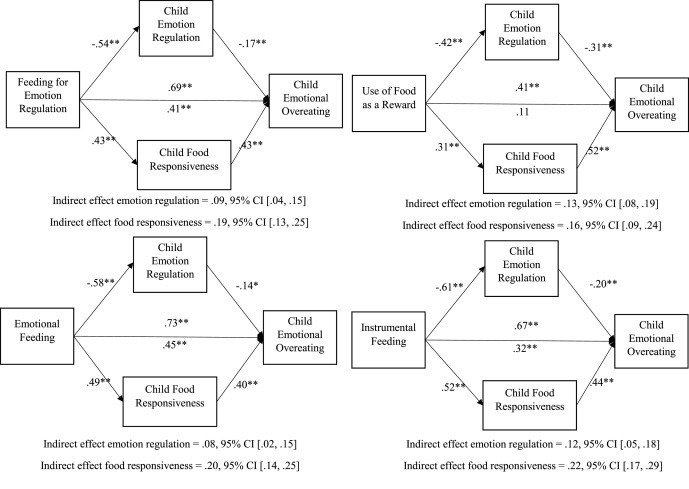
New research from the University of North Florida reveals that how parents use food in child-rearing may impact their preschoolers' emotional development and eating habits.
The study, published in the journal Appetite, examined 221 mothers of four- and five-year-old children to understand how different feeding practices affect children's ability to manage emotions and their eating behaviors.
Researchers identified four main types of coercive food practices: using food to regulate emotions, offering food as rewards or punishments, feeding during emotional situations, and using food to control behavior.
The findings showed that children whose parents frequently used these coercive feeding approaches demonstrated more difficulty managing their emotions. This poor emotional regulation was then connected to increased emotional overeating - the tendency to eat more when experiencing negative feelings.
"When parents use food to manage emotions or behavior, children may not develop healthy ways to cope with their feelings," explained study authors Lindsay N. Baker and Anita J. Fuglestad. "Instead, they learn to turn to food for comfort."
The research also explored emotional undereating - eating less when upset. While coercive feeding was linked to this behavior, the connection appeared more related to natural stress responses than learned coping mechanisms.
The preschool years represent a critical period when children develop both emotional control and eating patterns. The study suggests that how parents approach feeding during this time may have lasting effects on their children's relationship with food.
While the research provides valuable insights, the authors note that additional long-term studies are needed to fully understand how these feeding practices influence children's development over time.
For parents, these findings highlight the potential impact of using food as a tool for behavior management. The research suggests that helping children develop healthy emotional coping skills may be more beneficial than using food to address emotional needs.